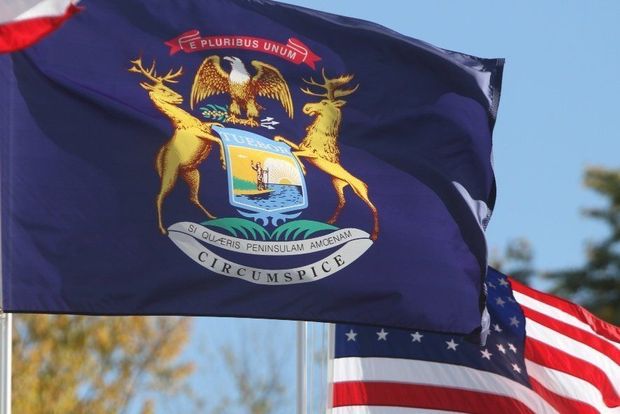
It has been a long time coming. After spending much of the last decade as a trio, the multi-state online poker compact will be adding a member to the fold. That lucky state will be Michigan, which will join Delaware, Nevada, and New Jersey in providing their online poker products and open the doors for a couple of companies to expand their gaming options.
Compact Addition Expected “Soon”
It was a lengthy road to reach this new arrangement.
First, the three states that originally made up the Multi-State iGaming Agreement had to approve the addition of the new state. Since its inception in 2014 Delaware, Nevada, and New Jersey began sharing their online poker pools, which created an approximate player pool of twelve million customers. Since that point, however, there were no other players in the game and, to be honest, only one company, WSOP/888, was able to take advantage of the three-state arrangement because they were the only company operational in all three states.
After Michigan passed online gaming and poker regulations in 2021, it became the frontrunner for joining on with the compact. That possibility inched closer to reality when the Michigan Gaming Control Board (MGCB) presented an adjustment to their regulations to allow for its operators to share liquidity with other states (it passed quickly). The final push towards the compact came when WSOP.com opened for business in the Wolverine State, which dropped another barrier against compacting.
“The Multi-State iGaming Association welcomes Michigan to its ranks, along with its nearly 10 million residents who can now avail themselves of a full array of interactive gaming among the Association’s member states,” Rebecca Satterfield, the Manager of the Association and the Gaming Manager for the Delaware Lottery, stated during the announcement of Michigan’s addition. “The Association continues to be forward thinking and welcomes the interest of additional gaming jurisdictions in becoming party to the Agreement.
Currently there is no word, other than “soon,” as to when Michiganders will be able to partake of the new arrangement.
What Changes?
With its 10.8 million residents, Michigan will nearly double the size of the compact between the three states originally involved in it. It will also present more competition between those companies that are involved because, for the first time, more than one company will be able to offer their product to more than one state. It will certainly be a “new world” for online poker in the U. S. with a fourth state in the mix.
Prior to this new multi-state compact, only WSOP.com and 888 could take advantage of the compact. Because Nevada only offers one company for online poker – WSOP.com, which has software provided by 888 – the only players eligible in the online poker arenas for compacting with New Jersey and Delaware was WSOP/888. Now, this dynamic changes as fresh players can enter the game.
For the first time since 2011 (for one company) and since 2006 (for the other), two companies will be able to offer multi-state play in the States. PokerStars (2011) and partypoker (2006), who have been a part of the New Jersey scene since its inception in 2013, now will be able to compact with their counterparts in Michigan. This will certainly improve their product and allow for some actual competition between the brands, something that has been lacking.
It is also interesting that the MSIGA in their statement mentioned “welcoming the interest” of other gaming jurisdictions. Currently Pennsylvania has not moved in the direction of compacting with the other states, instead preferring to stand alone. The addition of the Keystone state to the now four-state poker compact would be monumental and could also draw the other online poker states, West Virginia and Connecticut, to move forward with action in their states (regulations have been approved, but no companies have opened for business) to join a potentially even bigger multi-state compact.
Furthermore, how long is it going to be before the federal government sees the moves by the individual states to circumvent their lack of online gaming regulation with these multi-state compacts? And which way will they go with it, setting federal regulations or going more Draconian with their rules? Although it is a momentous day to see Michigan joining up with the “Big Three,” there are still plenty of questions left unanswered.























